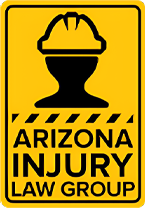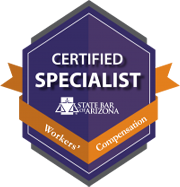The “Gig Economy” and Workers Compensation


In an earlier blog post, we discussed various factors courts have applied to determine whether a worker is an “employee” or an “independent contractor”. As in most states, in Arizona, the distinction is critical when a worker incurs an on-the-job injury. Simply stated, the Arizona workers compensation statute covers an “employee” (also sometimes called a “workman”, “worker” or ‒ reminiscent of spy stories – an “operative”) who suffers a work-related injury.
As such, an employee is by law deemed to have waived the right to sue the employer in exchange for receipt of workers comp benefits, in lieu of damages. An independent contractor, on the other hand, is not entitled to workers comp benefits and must generally sue and prove negligence on the part of the employer in order to recover damages.
Contractor versus employee status disputes is not new. Many have been initiated by workers seeking to establish their status as employees in order to claim benefits or protections such as overtime pay under federal or state wage and hour laws. However, a resurgence in claims has accompanied the increase in so-called “gig economy” jobs, such as driving for Uber or Lyft or freelancing through an online portal such as Upwork or ifreelance.com.
In determining whether their workers’ compensation and other employee protection laws apply, most states apply a fact-based test which examines various aspects of the employer-worker relationship. Historically, the Arizona Industrial Commission and state courts have applied the multi-factor “right to control” analysis adopted by the state Supreme Court in a 1979 decision.
RECENT ARIZONA LEGISLATION
In response to concerns about a real or perceived proliferation of worker status lawsuits, particularly against gig economy heavyweights such as Uber and Lyft, in 2016 Arizona adopted H.B. 2114. That legislation, which became effective in August of the same year, establishes a presumption of independent contractor status whenever a business has obtained a worker’s signature on a “declaration” form. The form contains the worker’s acknowledgment that he or she:
‒ Is an independent contractor
– Is not entitled to unemployment or other employee benefits, including coverage under the employer’s workers’ compensation insurance
‒ Is permitted to work for other businesses
‒ Must supply his or her own tools or equipment
‒ Must obtain at his or her expense any required licenses
‒ Will not, except as may be expressly agreed (for example, a mileage stipend for a restaurant delivery driver) be reimbursed for expenses
‒ Will not be subject to income tax withholding and is personally responsible for reporting and paying all applicable income taxes
‒ May generally determine his or her work schedule
THE FACT THAT THE BUSINESS IMPOSES MINIMUM PERFORMANCE STANDARDS DOES NOT NEGATE THE INDEPENDENT CONTRACTOR PRESUMPTION.
While obtaining a declaration is not mandatory, there seems to be little reason for a business not to do so. Although the presumption of independent contractor status may, in theory, be rebutted by the worker, this would seem to be a very difficult task absent a showing of active deceit or forgery by the business. The law also does not specify the amount or type of evidence needed to overcome the contractor presumption.
HB 2652, a companion bill to HB 2114, takes a similar approach to determining the status of persons using an intermediary freelance platform such as Upwork or ifreelance. That legislation states that such persons will be considered independent contractors if their written agreement with the platform operator makes certain required statements similar to those on the HB 2114 declaration. Unlike the presumption created by an HB 2114 declaration, however, it appears that a determination of independent contractor status under HB 2652 is irrebuttable.
Get Help Today
Call Immediately For A Free, No Obligation Consultation And Let Us Help You Put Your Life Back On Track. Let Us Help You
Regain Normalcy And Stability Again. We Want To Help You Get The Benefits You Need And Deserve!


